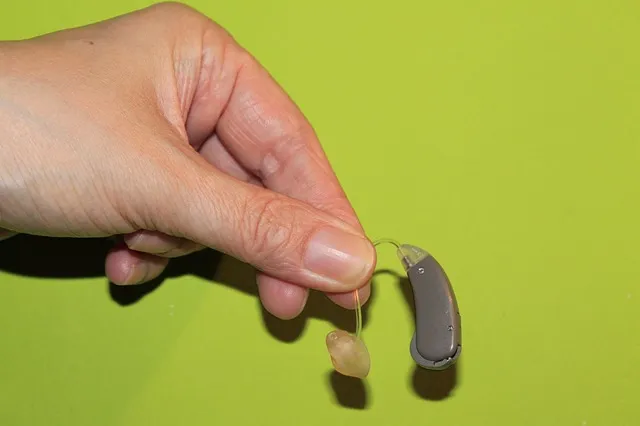Ever wondered why your stomach doesn’t just dissolve itself despite being filled with acid? The answer lies in the fascinating role this digestive powerhouse plays in breaking down food, absorbing nutrients, and defending against harmful invaders. But what is the role of acid in our stomach, and why is it so crucial for our overall health? In this article, we’ll dive into the science behind stomach acid, its functions, and what happens when its balance is disrupted.
What Is the Role of Acid in Our Stomach? Functions Explained
Our stomach makes acid to help in digestion. This acid, called hydrochloric acid (HCl), breaks down food and kills harmful bacteria. Stomach acid serves multiple functions that go beyond digestion. Here are some of the roles stomach acid plays in our body:
1. Activates Digestive Enzymes
Stomach acid isn’t just for breaking down food. It kickstarts digestion by:
-
Triggering pepsin: Acid converts pepsinogen into pepsin, the enzyme that digests proteins.
-
Enabling nutrient release: Without acid, vitamins like B12 won’t separate from food for absorption.
-
Balancing pH: Acid maintains the stomach’s acidic environment (pH 1.5–3.5) for enzyme activity.
-
Supporting liver function: Bile production relies on signals from properly digested stomach contents.
2. Breaks Down Food for Absorption
Your stomach’s acidic juices work non-stop to:
-
Break down complex foods: Proteins, carbs, and fats get split into absorbable molecules.
-
Liquefy meals: Acid turns solid food into chyme, a semi-liquid mixture for the intestines.
-
Speed up digestion: Acidic environments ensure faster breakdown, preventing stagnation.
-
Prepare for absorption: Without proper digestion, nutrients can’t enter your bloodstream.
3. Helps Absorb Essential Nutrients
Stomach acid doesn’t just digest—it unlocks nutrients:
-
Iron and calcium: Acid converts them into bioavailable forms for the body.
-
Vitamin B12: Binds with intrinsic factor (a stomach protein) only in acidic settings.
-
Magnesium: Absorption drops if acid levels are too low.
-
Zinc: Requires acid for release from food, boosting immunity and healing.
4. Protects Against Harmful Bacteria & Infections
Think of stomach acid as your body’s bouncer:
-
Kills harmful bacteria: Acid neutralizes pathogens in contaminated food or water.
-
Prevents infections: Low acid levels increase risks of H. pylori or Salmonella.
-
Protects gut lining: Acid discourages overgrowth of fungi like Candida.
-
Filters toxins: Many harmful substances get broken down before reaching the intestines.
5. Acts as a Health Indicator
Your body uses acid imbalances as warning signals:
-
Heartburn: Often due to excess acid leaking into the esophagus.
-
Bloating: Low acid prevents proper digestion, causing gas buildup.
-
Nausea: Undigested food irritates the stomach lining.
-
Fatigue: Poor nutrient absorption leads to low energy levels.
6. Prevention of Gastrointestinal Infections
Research shows chronic gut issues are linked to acid imbalances. Acid helps by:
-
Blocking parasites: Acidic environments kill parasites from raw foods.
-
Reducing inflammation: Proper acid levels prevent leaky gut syndrome.
-
Balancing microbiome: Acid ensures only beneficial bacteria thrive in the intestines.
-
Avoiding SIBO: Low acid can cause small intestinal bacterial overgrowth (SIBO).
How Does Stomach Acid Affect Digestion?
Stomach acid (hydrochloric acid or HCl) initiates digestion by denaturing proteins—unfolding their structure for enzymes to act. It triggers pepsinogen conversion to pepsin, which cleaves peptide bonds in proteins. HCl also stimulates cholecystokinin (CCK), a hormone that prompts bile release for fat emulsification.
Without adequate HCl, carbohydrates ferment, proteins putrefy, and fats rancidify, causing indigestion. The acidic chyme then signals the pyloric sphincter to open, allowing food into the duodenum for further breakdown.
What Causes Low Stomach Acid? (Hypochlorhydria)
Low HCl (hypochlorhydria) arises from chronic stress, poor diets (highly processed foods), or infections like H. pylori. Aging reduces acid production in some, but lifestyle plays a bigger role. Autoimmune conditions (e.g., Hashimoto’s) damage parietal cells, which secrete HCl.
Overuse of antacids or PPIs suppresses acid, creating dependency. Zinc deficiency also hampers acid synthesis, as zinc is a cofactor for HCl production.
How to Naturally Balance Stomach Acid Levels?
Rebalancing acid isn’t about quick fixes. If you’re struggling with digestion, boosting stomach acid naturally can help. Try these science-backed methods:
|
Method |
How It Helps |
|
Apple cider vinegar |
Acetic acid mimics stomach acid, boosting digestion. Dilute 1 tsp in water pre-meal. |
|
Ginger tea |
Ginger stimulates HCl production and soothes inflammation. |
|
Chewing thoroughly |
Reduces stomach workload, signaling acid release. Aim for 20 chews per bite. |
|
Zinc-rich foods (pumpkin seeds, lentils) |
Supports acid production. |
|
Avoid overeating and take smaller meals |
Prevents acid dilution and improves digestion. |
|
Manage stress |
Reduces cortisol, which disrupts acid secretion. |
What Happens If Stomach Acid Is Imbalanced?
Ignoring acid issues invites bigger problems. Imbalances cause:
-
Chronic indigestion and nutrient deficiencies.
-
Increased risk of food poisoning and gut infections.
-
Iron deficiency anemia due to poor iron absorption.
-
Osteoporosis from inadequate calcium uptake.
- Skin issues (acne, eczema) due to poor protein digestion.
-
Hair loss and brittle nails from zinc and B12 deficiencies.
-
Autoimmune triggers via undigested food particles.
-
Fatigue and brain fog from poor glucose metabolism.
-
GERD and Barrett’s esophagus from prolonged acid reflux.
Conclusion
Our stomach acid isn’t just a digestive aid—it’s a powerhouse of protection and nutrient absorption. From breaking down food to killing harmful bacteria, what is the role of acid in our stomach if not to keep our digestive system running smoothly? However, balance is key—too much or too little acid can lead to discomfort and health issues. Understanding its role empowers us to make better dietary and lifestyle choices for a healthier gut and overall well-being. So, the next time you enjoy a meal, remember—your stomach acid is working hard behind the scenes!
Share this guide with friends—everyone deserves a happy gut! Ready to heal? Book a consultation today and take control of your digestion.
Did You Know?
- Your stomach acid is strong enough to dissolve metal—but your stomach lining protects you!
- Low stomach acid is often mistaken for too much, leading to unnecessary antacid use.
- Digestive issues like bloating and heartburn are more often caused by LOW acid, not high!
Frequently Asked Questions
Does drinking lemon water increase stomach acid?
Yes! Lemon’s citric acid mimics HCl, stimulating production. Have it warm before meals.
Is coconut water good for acid reflux?
Sometimes. It’s alkaline but high in potassium, which may relax the esophageal sphincter.
Does fasting affect stomach acid levels?
Intermittent fasting can normalize acid, but prolonged fasting may reduce HCl temporarily.
Can I test my stomach acid at home?
Try the baking soda test: Mix ¼ tsp in water, and drink on an empty stomach. Burping within 3 minutes suggests adequate acid.
Are bananas good for low stomach acid?
Yes! Bananas are alkaline but stimulate mucus production, protecting the stomach lining.
Does yoga help balance stomach acid?
Certain poses (like Vajrasana) enhance digestion by improving blood flow to abdominal organs.
Can stress really lower stomach acid?
Absolutely. Stress shifts focus to “fight or flight,” slowing digestion and acid release.
Reviewed by







